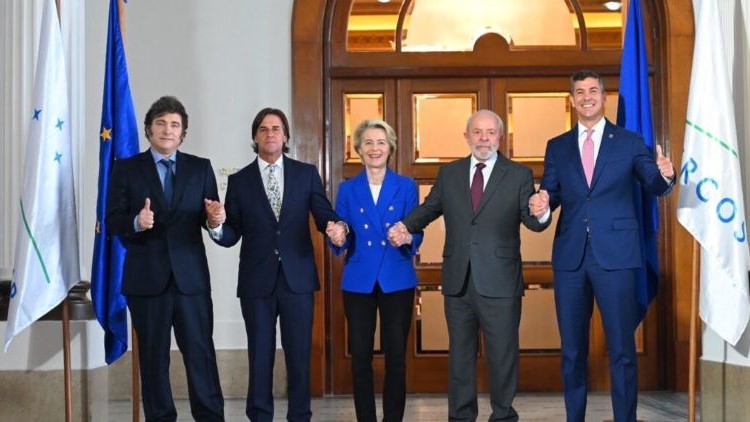Ane Barcos
Brazilian President Luiz Inácio Lula da Silva announced this Sunday that the free trade agreement between the European Union and Mercosur will be formally signed on December 20.
This pact, which connects 722 million people and encompasses a combined Gross Domestic Product (GDP) of 22 trillion dollars, is considered, according to Lula, “the largest trade agreement in the world.” Furthermore, the president emphasized that the signing of this agreement will represent a milestone for both the Mercosur member countries and those of the European Union.
However, he stressed that, although this event will be an important achievement, many challenges remain to be overcome to ensure that the benefits of the agreement are effectively realized for all parties involved.
On November 8, Prime Minister Pedro Sánchez, speaking at the fourth summit between the European Union and the Community of Latin American and Caribbean States (CELAC) in Santa Marta, Colombia, conveyed Spain’s support for the approval of the Mercosur trade agreement before the end of the year.
The signing of the agreement is scheduled for the Mercosur Leaders’ Summit, to be held on December 20 in Foz do Iguaçu, Brazil.
After more than two decades of negotiations, the European Union and the bloc comprised of Argentina, Brazil, Paraguay, and Uruguay finalized talks on this agreement in December 2024. The main objective is to promote trade and strengthen economic cooperation between the two blocs.
In September, the European Commission formally submitted the agreement to the European Parliament and the member states for review and potential ratification.
For the agreement to enter into force, it will require approval from the European Parliament, which necessitates a majority of at least 50 percent plus one of its members. This process could face resistance, especially in nations like France, which has already expressed objections related to agricultural and industrial production conditions. France has already labeled the agreement “unacceptable,” arguing that it does not adequately address environmental standards.
Furthermore, the agreement will require ratification by at least 15 of the 27 European Union countries, representing at least 65% of the bloc’s population. This ratification process could extend over several years, and, once completed, the agreement will replace the current interim trade agreement between the two regions.
